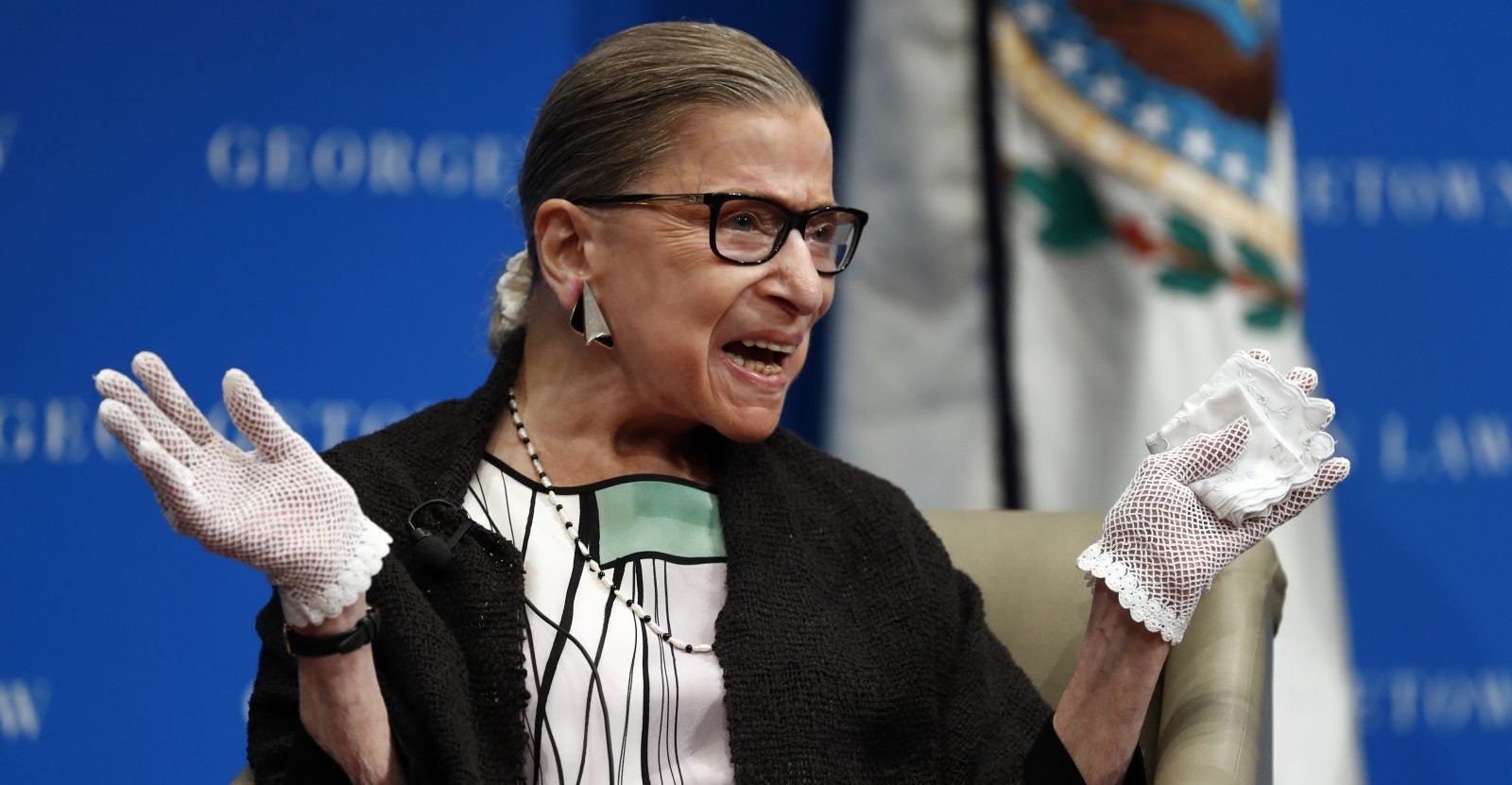Learn to clapback like the notorious RBG
Ruth Bader Ginsburg’s clapbacks to sexism sting just as strongly today as they did in the 1970s. And unfortunately, they’re just as relevant.


Ruth Bader Ginsburg’s clapbacks to sexism sting just as strongly today as they did in the 1970s. And unfortunately, they’re just as relevant.
Speaking with NPR’s Nina Totenberg yesterday (Jan. 21) at the Sundance Film Festival, the notorious RBG—at 84, the oldest justice on the US Supreme Court—used pointed anecdotes to recount her lifelong experience in the fight for women’s rights and against sexism and sexual misconduct. One story described a situation all-too familiar to most moms: Being the assumed point-person on all matters relating to your child, from schooling and extracurricular activities to birthday parties.
As NPR reports, in the 1970s, while Ginsburg was founding the ACLU Women’s Rights Project, teaching law at Columbia University, and litigating cases before the Supreme Court, she was also raising two children. During this time, she’d often receive calls from her son James’ school. “The child was what his teachers called ‘hyperactive’ and I called ‘lively,'” says Ginsburg.
One of these calls came the morning after Ginsburg stayed up all night writing a brief. While working at her Columbia office, she picked up the phone and gave a pointed response: “This child has two parents. Please alternate calls. It’s his father’s turn.”
True to form, Marty Ginsburg, who was also a lawyer, then headed to their son’s school. ”The remarkable thing about Marty is that he cared that I had a brain. No guy up until then was the least interested in how I thought,” says Ginsburg, of her late husband. And following her exquisite burn, the calls about her son came barely once a semester. “The reason was they had to think long and hard before asking a man to take time out of his work day to come to the school,” says Ginsburg.
While society conditions us to believe women are caretakers, Ginsburg’s response epitomizes truths that were ahead of her time: Women can simultaneously be great mothers and lead successful careers, and if men want healthy, happy children, they ought to shoulder their portion of child care. It’s a trend fathers seem to support, too, as the share of men with children under age 18 who choose to stay at home, rather than look for other work, rose from less than 1% in the 1970s to 4% in 2016. Still, that percentage lags behind women: Today, 28% of mothers leave the workforce to stay at home with their children.
Ginsburg’s bucking of gender norms was not limited to motherhood. While she was a student at Cornell in the 1950s, Ginsburg says the response to sexual harassment “was simply ‘Get past it. Boys will be boys.'” But when a professor expected sexual favors from her in exchange for help on a test, she didn’t “get past it.” “I went to his office and I said, ‘How dare you? How dare you do this?’ And that was the end of that,” she tells Totenberg.
Today, Ginsburg is glad to see millions of women continue the fight she has led for so long. “I think it’s about time,” says Ginsburg, reflecting on the #MeToo movement against sexual harassment. “For so long women were silent, thinking there was nothing you could do about it. But now the law is on the side of women or men who encounter harassment, and that’s a good thing.”
Still, Ginsburg is aware progress today does not guarantee momentum tomorrow: “Let’s see where it goes. So far, it’s been great,” she tells Totenberg. “When I see women appearing every place in numbers, I’m less worried about backlash than I might have been 20 years ago.”